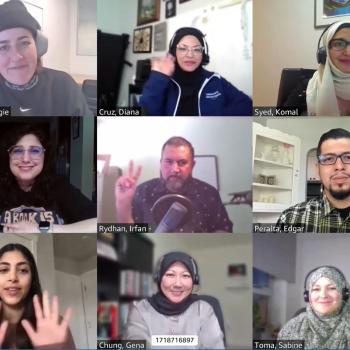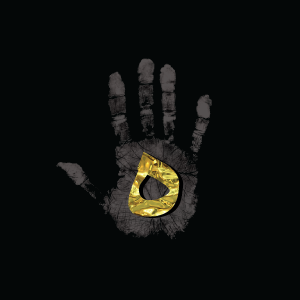
BY IRFAN RYDHAN for ILLUME MAGAZINE
http://www.illumemag.com/zine/articleDetail.php?Pakistani-Playhouse-Breaks-New-Ground-13490
Imran S. Javaid and Imran W. Sheikh, two young Pakistani-American Muslims, started “Parwaz Playhouse” – the first major Pakistani Theatre Company in the Fall of 2009. ILLUME caught up with them as they prepare for their latest production – an adaption of Eugene O’Neill’s “Beyond the Horizon”, which will begin performing to audiences on Feb. 25, 2011 in New York City
How did you come up with the idea to start a Pakistani-American Theatre company, and how did you come up with the name “Parwaz Playhouse”?
We both were working on the play “The Domestic Crusaders” by Wajahat Ali, when it was running in New York in Sept of 2009. While we were doing the rehearsals, I looked around and realized that we are all enjoying what we are doing and why can’t we keep this going and do more productions that focus on brown people like us. I discussed it with Imran Javaid, who is also a playwright, and he agreed it was a good idea. We also discussed it with Wajahat, who said we should go for it. So while working on the Domestic Crusaders, every night we started planning out how to start a theater company, what type of plays we would do, etc.
In terms of the name, I have always been of fan of Rod Serling’s “Playhouse 90”, so I knew I wanted Playhouse in the name of our theater company. Although we are both Pakistani and wanted to do stories on Pakistan and Pakistani-Americans, we didn’t want to limit ourselves with a name like “Pakistani Playhouse.” My mother suggested the Urdu word “Parwaz” (meaning “a bird’s first flight”), because it was used a lot by Alama Iqbal (famous Pakistani poet) in many of his ghazzals (urdu poetry).
What was the reaction of your family and friends when you started a Theatre Company for Pakistani-Americans?
IWS: There was a mixed reaction, but majority was positive. We received many wishes well in support. Everyone knows that there is a lot of negative images of Pakistanis and Muslims out there, so we feel it is our job to try to get through the negativity and show us as human beings. Theater is the study of the human condition. It’s a visual media and that is a key to be able to show American society who we are. We are giving a voice to our community and people understand that and are supporting us.
Usually there is a negative reaction when someone from our community (Pakistani) goes into a non-traditional field, something outside of medicine, engineering, etc. But if you study most civilizations, you will see that they start off with agriculture and then once they are settled in, they start getting into the arts. When our parents came here to this country, it was an alien landscape for them. They had to sacrifice and basically just work, sleep and take care of the kids. They stayed in traditional and conservative fields just to survive. But now it is up to our generation to go into the arts – acting and also politics and other different fields. We have the luxury to do that now, after our parents sacrificed for us.
Tell us a little about your first production called “Glass”
ISJ: Glass is a 30 minute play I wrote and directed. We performed it at the Nuyorican Poet’s Café in November 2009. It takes place in a newsroom in a country very similar to Pakistan. A bombing happens outside and the play is basically about the role of the newspaper during a time of violence and how an editor and star reporter work together to cover the story. A government minister also visits the newsroom and we see the interaction between government and media.
IWS: The play was also selected for the Downtown Urban Theater Festival in April of 2010 and was one of only 3 performances to sell out to the point where people were turned away during the festival’s two week run.
Tell us about your latest production, “Beyond the Horizon” and how you adapted it for Pakistanis
ISJ: We chose to do an adaption of “Beyond the Horizon” because it is considered to be one of the first major American tragedies and we thought it would be great as our first full length play for the first Pakistani-American Theatre company. The original play was written in the 1910’s about a family of Irish descent that lives on a farm. A farmer has two sons – one who wants to leave the farm and see what’s out in the world and the other who wants to stay on the farm. And they are also both in love with the same girl. It’s a 3 act play that shows different time periods in the family’s life and how things don’t go as planned. It’s a tragedy, and won the Pulitzer in 1920.
Our adaption of the story takes place in 1960’s Pakistan. We set the play in a village near Karachi. It also deals with a family that is struggling with how to deal with some members wanting to leave the country and others wanting to stay – basically it is the story of our parent’s generation and how they left Pakistan, leaving many of their family and friends behind. The love story is still there. We stayed pretty close to O’Neill’s original story, though we did end up cutting out four of the ten characters so we could pare it down to about 90 minutes from 2 hours and 45 minutes.
What are some of your goals with this play and ultimately with your theatre company?
IWS: We wanted to show our parent’s experience with this story. Give a window to the public, both Pakistanis and non-Pakistanis, so people can see who we are. Give a voice to our community. One of our goals is to encourage more Pakistanis to enter the arts.
ISJ: There are a lot of talented people in our community and we want to create a forum to allow all that talent to flourish. There are set designers, costume designers, actors, etc. Art is a great unifier which can bring all these talented people together. We also want to make bridges to other communities.
IWS: But, at the end of the day, we’re out to produce good and entertaining theatre. Our ultimate goal is to have an actual brick and mortar building. But we know that is way down the road. Right now we are honored to put our play on at Theater for the New City in New York. They liked our work and they have supported many famous playwrights and actors over the years, so we are very honored to be able to work there.












